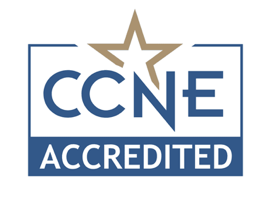
post-master's certificate program

As part of a cutting-edge University, the School of Nursing provides a diverse, energetic and collegial environment for participating in world-class interprofessional education, scientific inquiry and practice opportunities. UDs highly sought-after faculty prepare the Post-Master’s certificate student to provide and manage care for patients — individually and in groups — with emphases on understanding the clinical progression of patients, care transitions and processes, and evidence-based practice.
Adult/Gerontology Acute Care Nurse Practitioner (AGACNP)
Adult Gerontology Acute Care Nurse Practitioners are prepared to diagnose and treat patients with acute or critical issues, or acute exacerbations of chronic health conditions. Specifically, qualified to obtain health histories, perform physical assessments, develop differential diagnoses, order and interpret diagnostic studies, determine management plans, order pharmacology therapies and other therapeutic interventions, collaborate and communicate with other members of the healthcare team, and facilitate transitions across different levels of care. AGACNPs are prepared to provide acute care services to patients ages 18 through the end of life. The Post-Master’s certificate program prepares the student to take the ANCC certification exam, and provides more than 500 hours of clinical training.
Adult/Gerontology Nurse Practitioner (AGNP) and Family Nurse Practitioner (FNP)
Adult-Gero NP and Family NPs provide primary care to individuals and families and communities. The Post-Master’s certificate program prepares the student to take the ANCC or AANP AGNP and FNP certification exam, and provides more than 500 hours of clinical training. The Plan of Study (POS) for AGNP and FNP Post-Master’s certificate is individualized according to prior course work
Pediatric Primary Care Nurse Practitioner (PNP)
The role of the primary care pediatric nurse practitioner is to provide care to children from birth through young adult (up to 21) with an in-depth knowledge and experience in pediatric primary health care including well child care and prevention/management of common pediatric acute illnesses and chronic conditions. This care is provided to support optimal health of children within the context of their family, community, and environmental setting. The Post-Master’s certificate program prepares the student to take the PNCB certification exam, and provides more than 500 hours of clinical training.
Psych/Mental Health Nurse Practitioner (PMHNP)
By combining cutting-edge neuroscience, evidence-based practice, classical theoretical underpinnings, and innovative holistic modalities, our practitioners are dually prepared to provide both psychotherapy and medication management to promote optimal health outcomes in individuals, families, and communities across the lifespan. Practitioners are prepared to tackle the latest clinical challenges in the field and to provide leadership in integrated healthcare delivery models and interdisciplinary collaboration. Students prepare for the American Nurses Credentialing Center’s PMHNP certification exam with more than 500 clinical training hours in three psychotherapeutic treatment modalities addressing individuals, families, and groups.
These programs can generally be completed in 1-2 years of part-time study with 500 clinical hours. Students may be eligible for a reduction in course work. For those students, an individual program of study will be formulated by performing a formal Gap Analysis of previously completed course work. To be eligible for this reduction students are required to submit syllabi, course calendars, and transcripts of the courses under consideration.
The Post-Master’s Nurse Practitioner Certificate programs are intended for individuals who already hold a minimum of a Master of Science in Nursing degree and certification/ licensing as a nurse practitioner or clinical nurse specialist with the core courses and clinical experiences necessary for eligibility for advanced certification to become an Adult Gerontology, Adult Gerontology Acute Care, Family, Pediatric or Psych/Mental Health Nurse Practitioner, and prepares advanced practice clinicians to deliver high quality care to various patient populations.
The Post-Master’s programs admit students once a year. Applications and supplementary materials for admission must be submitted by April 15 for the summer/ fall semester admission. Upon review, qualified applicants with completed applications will be scheduled for an interview prior to admission.
Admission Criteria:
Students will be admitted to the program based on enrollment availability, and their ability to meet the following minimum recommended entrance requirements:
A master’s degree in nursing from a CCNE or ACEN accredited School of Nursing.
A master’s GPA of 3.5 or higher.
Eligible for RN licensure in Delaware.
Holds certification/ licensure as a nurse practitioner or clinical nurse specialist.
UD Tuition
The 2023-2024 UD graduate student tuition rate per credit hour is $1,352.
Tuition Credit
Due to a College of Health Sciences Dean’s Scholarship, the student tuition rate is lower than the published UD graduate tuition rate. The final student tuition rate for the Post Master’s Certificate program is $1055/credit. Please contact the department for more information.
 The baccalaureate degree program in nursing, master's degree program in nursing, Doctor of Nursing Practice program and post graduate APRN certificate program at the University of Delaware are accredited by the Commission on Collegiate Nursing Education (http://www.ccneaccreditation.org).
The baccalaureate degree program in nursing, master's degree program in nursing, Doctor of Nursing Practice program and post graduate APRN certificate program at the University of Delaware are accredited by the Commission on Collegiate Nursing Education (http://www.ccneaccreditation.org).
